Avoid self-righteousness like the devil- nothing is so self-blinding.
B. H. LIDDELL HARTA complacent satisfaction with present knowledge is the chief bar to the pursuit of knowledge.
More B. H. Liddell Hart Quotes
-





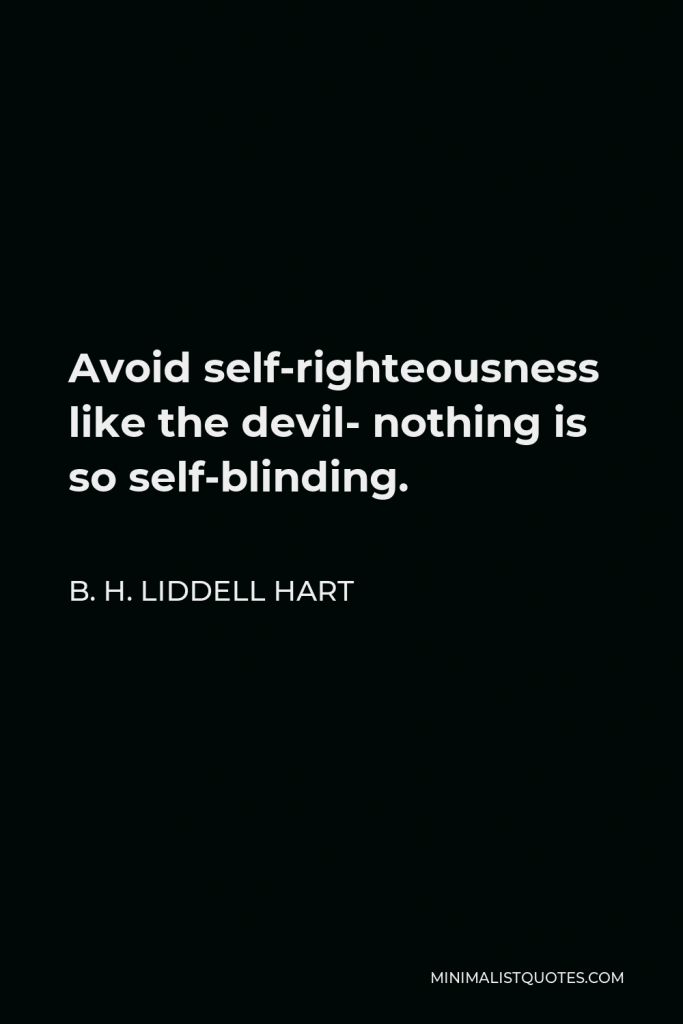

-





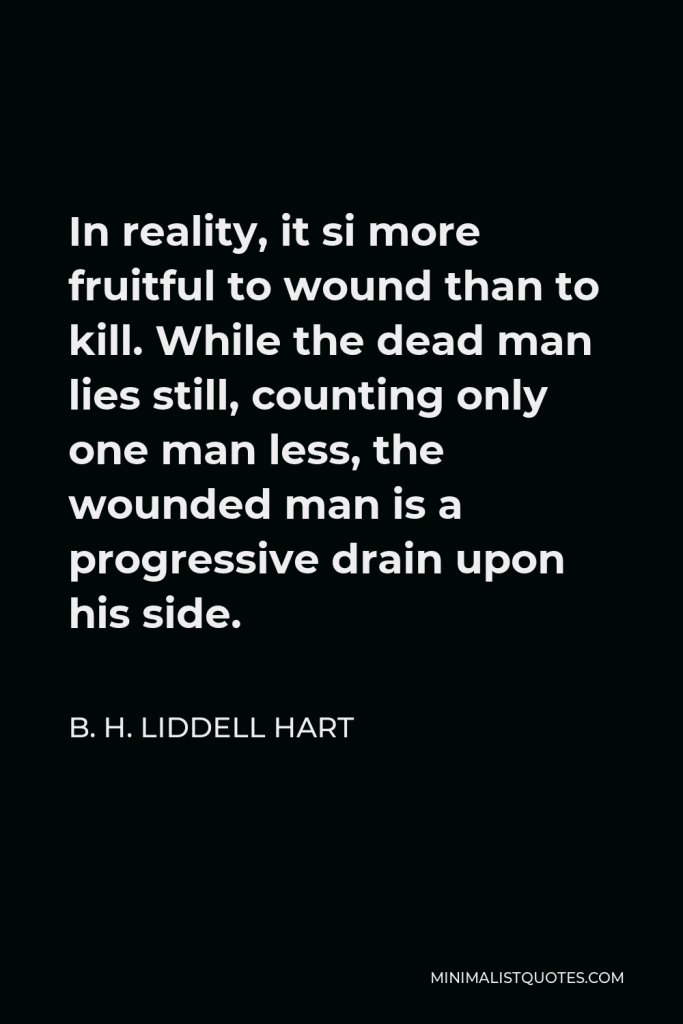

In reality, it si more fruitful to wound than to kill. While the dead man lies still, counting only one man less, the wounded man is a progressive drain upon his side.
B. H. LIDDELL HART -







The search for the truth for truth’s sake is the mark of the historian.
B. H. LIDDELL HART -





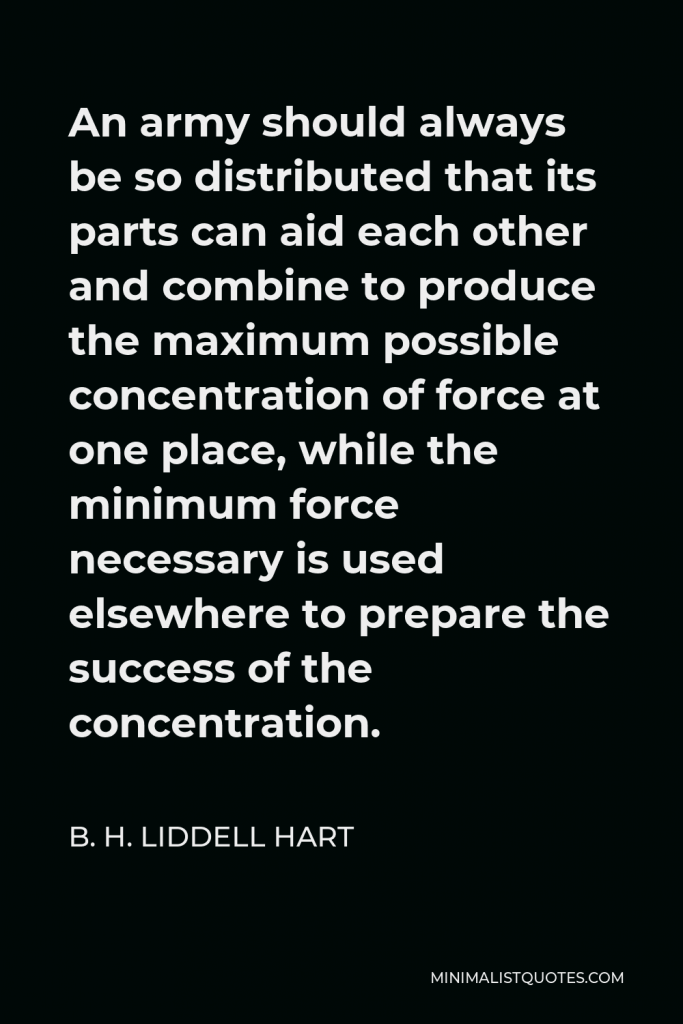

An army should always be so distributed that its parts can aid each other and combine to produce the maximum possible concentration of force at one place, while the minimum force necessary is used elsewhere to prepare the success of the concentration.
B. H. LIDDELL HART -





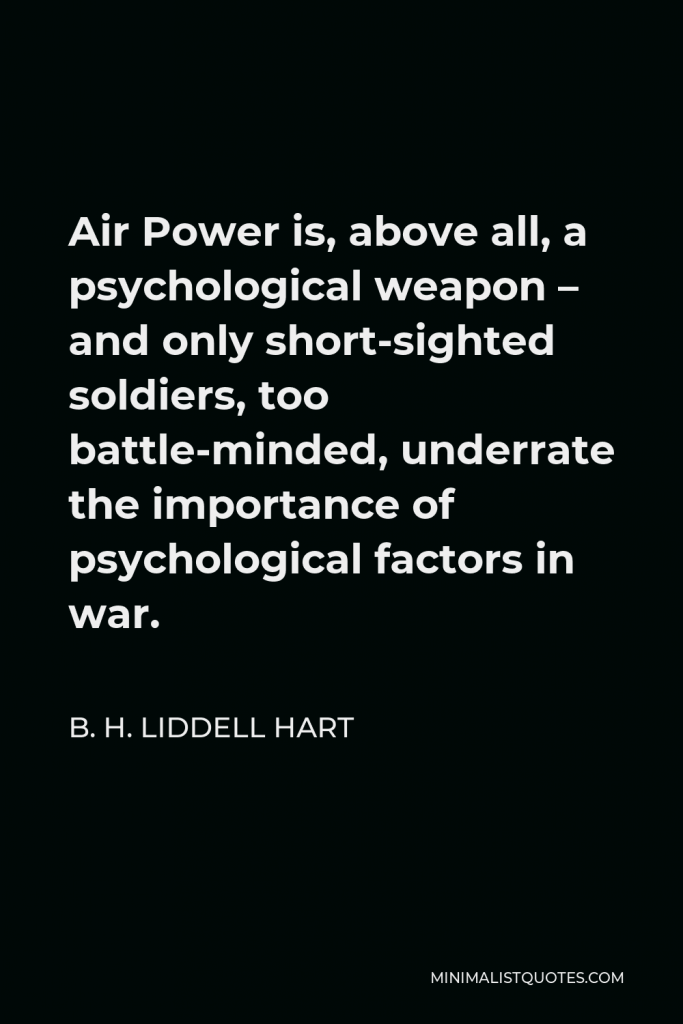

Air Power is, above all, a psychological weapon – and only short-sighted soldiers, too battle-minded, underrate the importance of psychological factors in war.
B. H. LIDDELL HART -





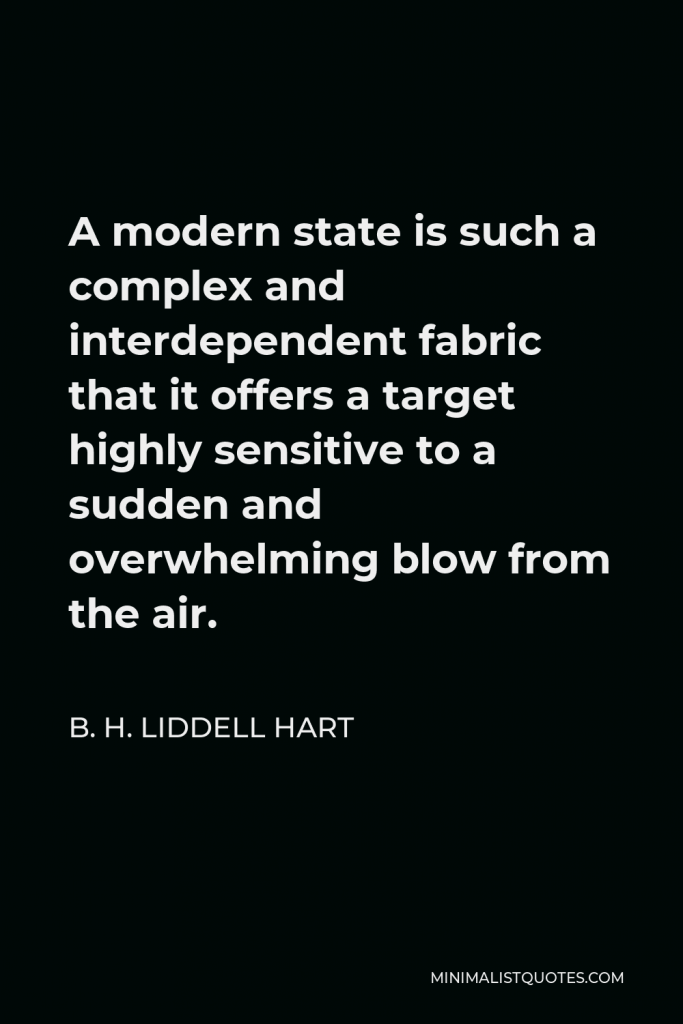

A modern state is such a complex and interdependent fabric that it offers a target highly sensitive to a sudden and overwhelming blow from the air.
B. H. LIDDELL HART -







Natural hazards, however formidable, are inherently less dangerous and less uncertain than fighting hazards. All conditions are more calculable, all obstacles more surmountable than those of human resistance.
B. H. LIDDELL HART -





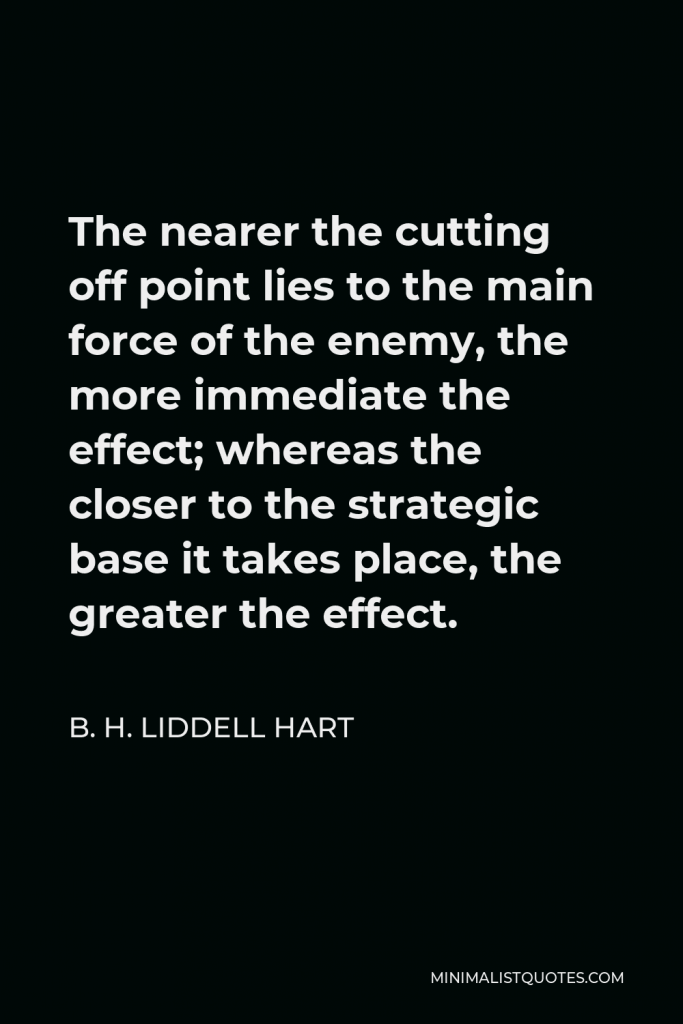

The nearer the cutting off point lies to the main force of the enemy, the more immediate the effect; whereas the closer to the strategic base it takes place, the greater the effect.
B. H. LIDDELL HART -





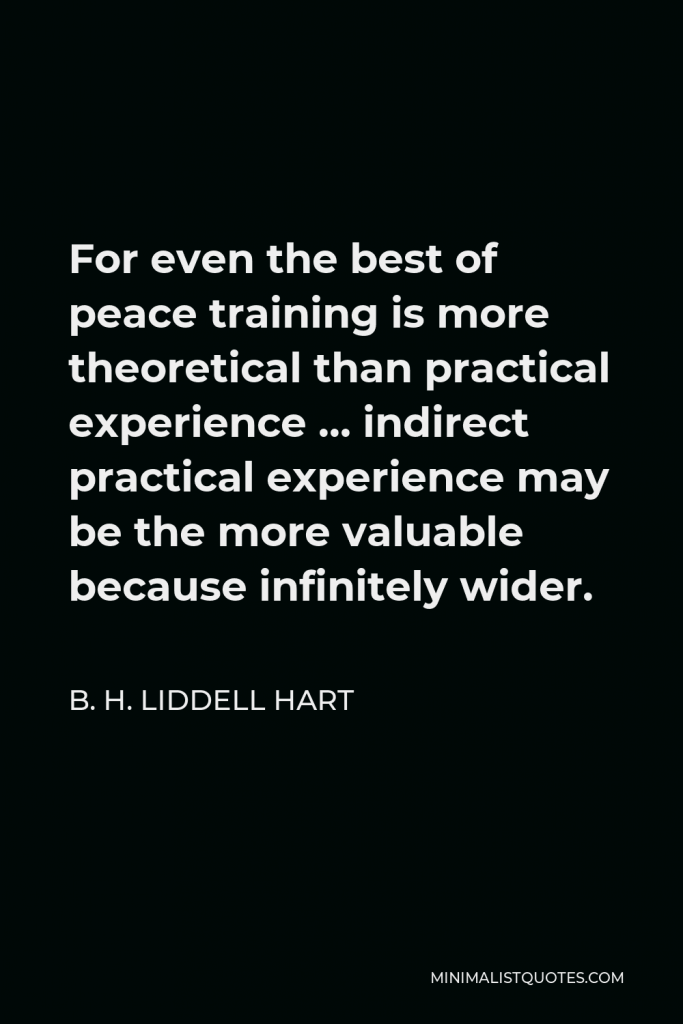

For even the best of peace training is more theoretical than practical experience … indirect practical experience may be the more valuable because infinitely wider.
B. H. LIDDELL HART -





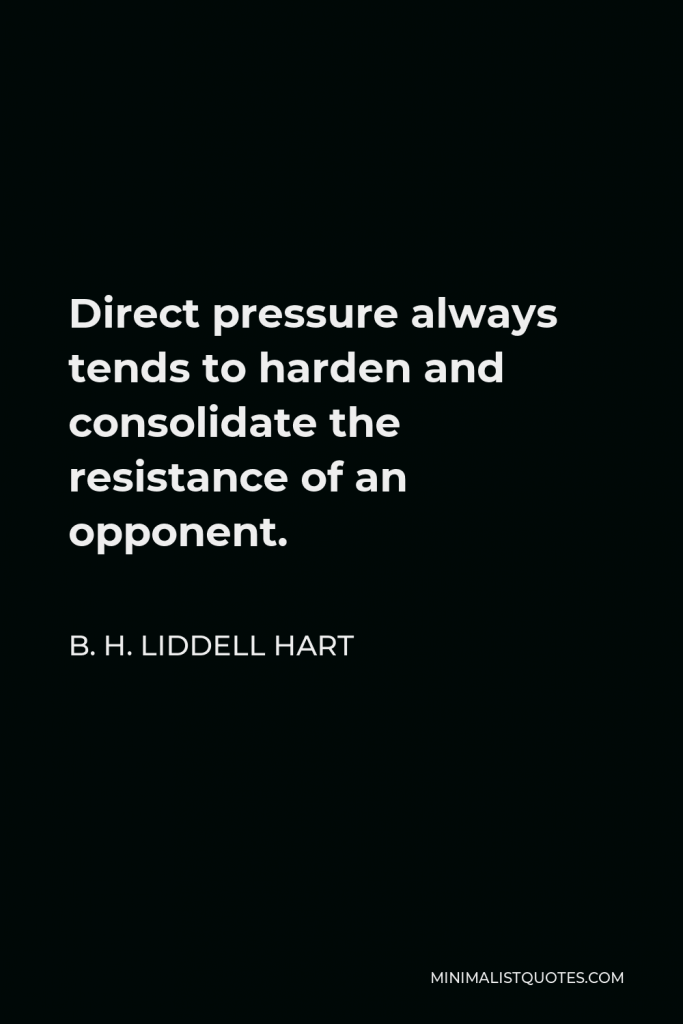

Direct pressure always tends to harden and consolidate the resistance of an opponent.
B. H. LIDDELL HART -






The implied threat of using nuclear weapons to curb guerrillas was as absurd as to talk of using a sledge hammer to ward off a swarm of mosquitoes.
B. H. LIDDELL HART -





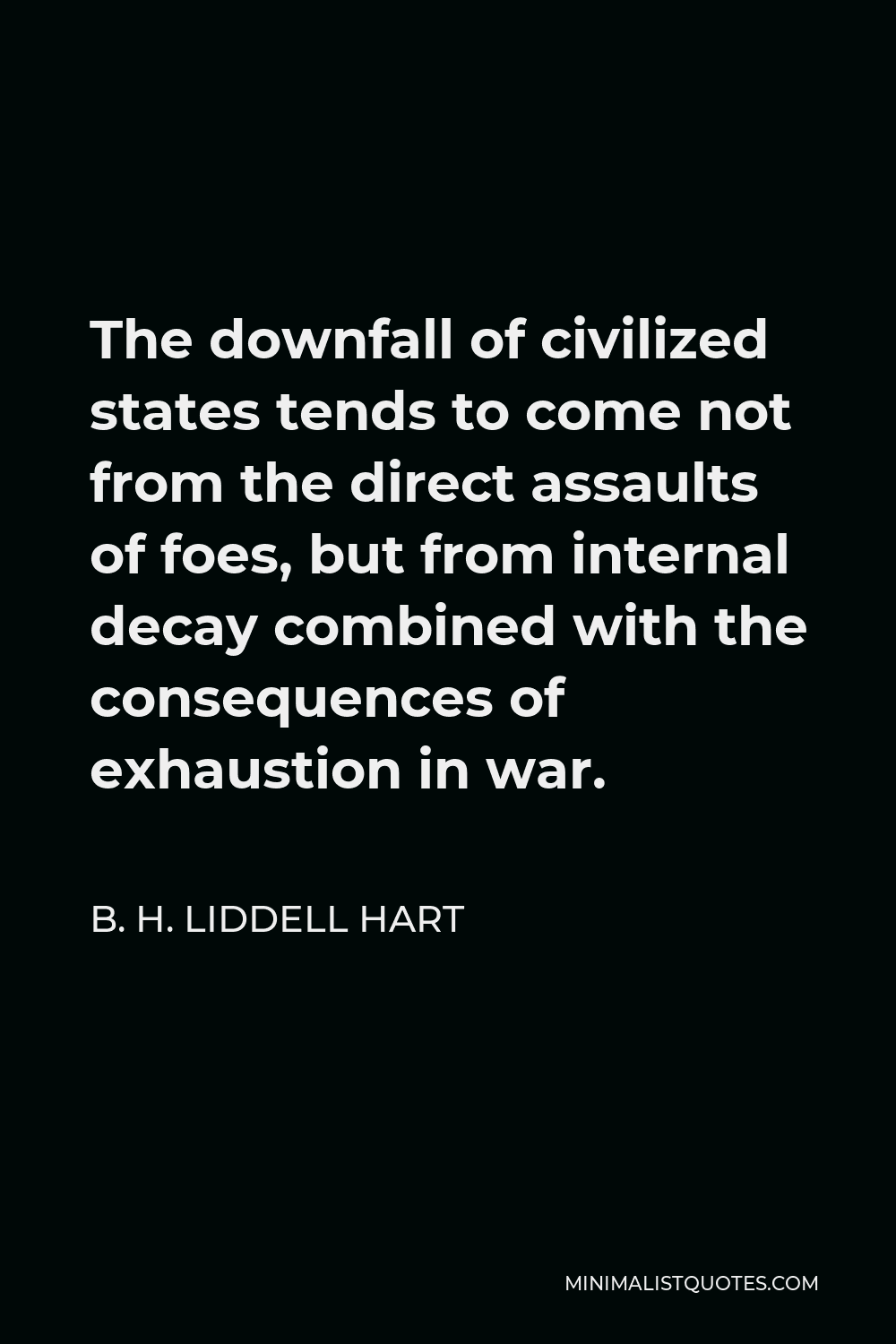
The downfall of civilized states tends to come not from the direct assaults of foes, but from internal decay combined with the consequences of exhaustion in war.
B. H. LIDDELL HART -





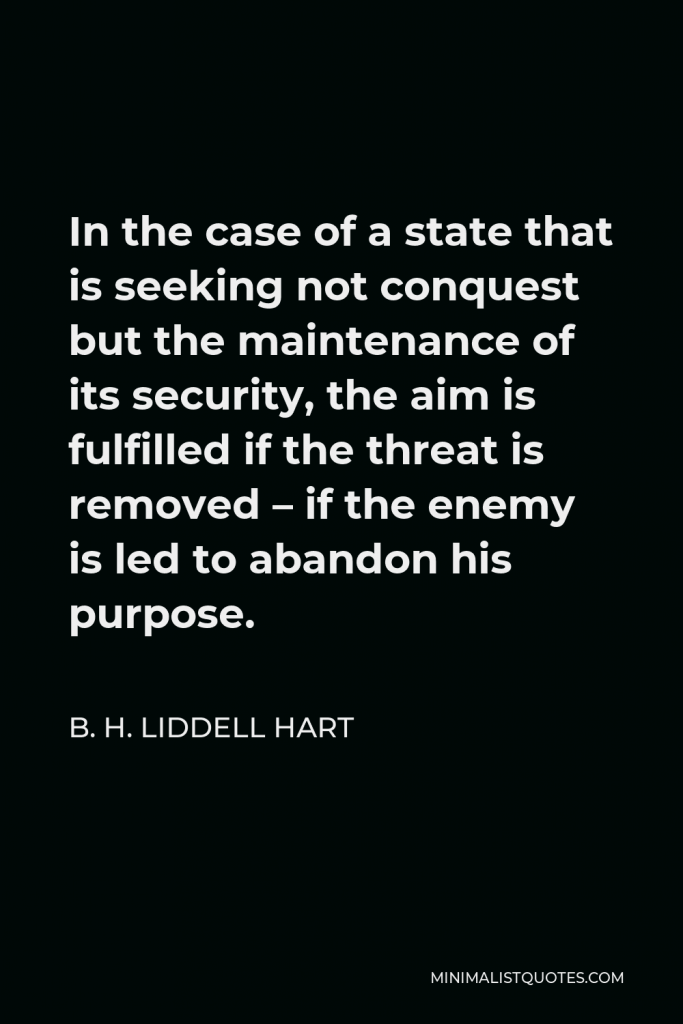

In the case of a state that is seeking not conquest but the maintenance of its security, the aim is fulfilled if the threat is removed – if the enemy is led to abandon his purpose.
B. H. LIDDELL HART -





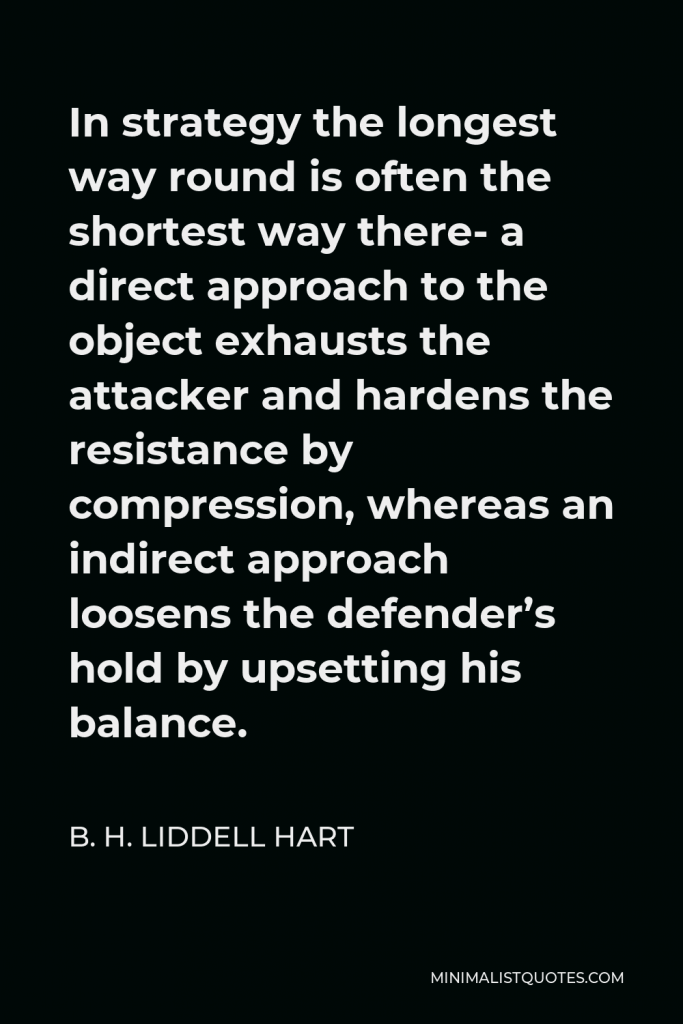

In strategy the longest way round is often the shortest way there- a direct approach to the object exhausts the attacker and hardens the resistance by compression, whereas an indirect approach loosens the defender’s hold by upsetting his balance.
B. H. LIDDELL HART -







I used to think that the causes of war were predominantly economic. I came to think that they were more psychological. I am now coming to think that they are decisively “personal,” arising from the defects and ambitions of those who have the power to influence the currents of nations.
B. H. LIDDELL HART -





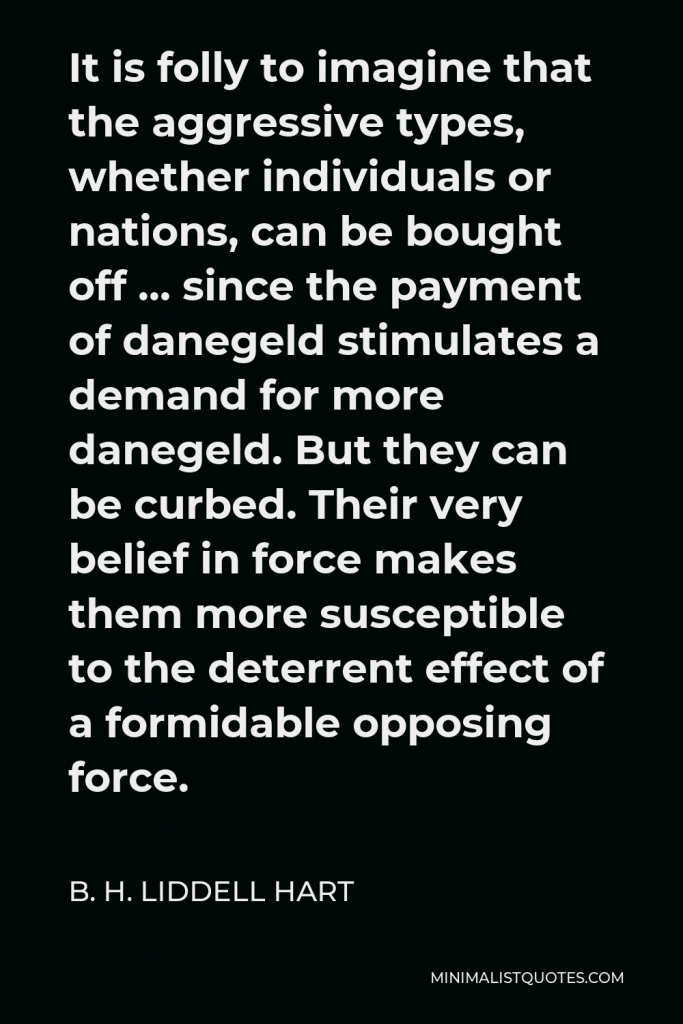

It is folly to imagine that the aggressive types, whether individuals or nations, can be bought off … since the payment of danegeld stimulates a demand for more danegeld. But they can be curbed. Their very belief in force makes them more susceptible to the deterrent effect of a formidable opposing force.
B. H. LIDDELL HART







